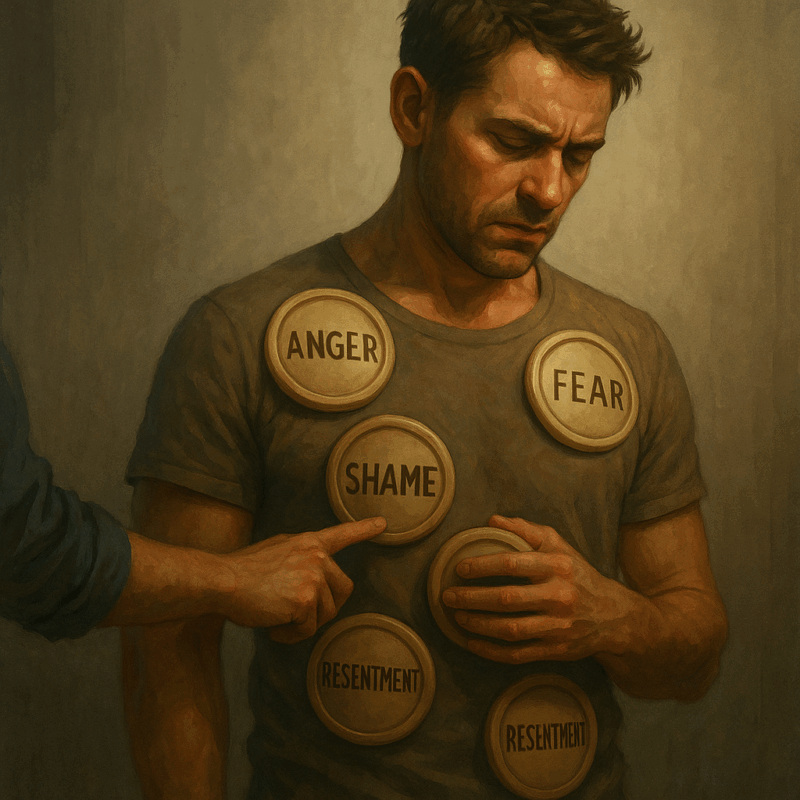Blog
He/She Pushed My Buttons
Posted on September 2, 2025, tagged as

Dealing with anger is one of the primary challenges we all face in life. For some people this is a greater challenge than for others, but a challenge, nevertheless. There are many unconstructive ways of dealing with anger. Among them we find losing one’s temper, striking out verbally or physically, taking other sorts of punitive actions, and holding on to resentments. Sometimes we act out of anger instinctively, without taking the time to think about the consequences of our words or actions, either to others or to ourselves. Typically, after such a blow-up, we find the need to do some sort of clean-up or other, and one way we attempt to justify our behavior is to make excuses. Such excuses may be being under a lot of stress, having had too much to drink, not getting enough sleep, blaming the other person for one of many reasons, or admitting that we misunderstood the situation.
A common excuse I often hear is “He/she pushed my buttons.” Thus, even though the “buttons” belong to the person involved, they take no responsibility for their buttons. The fault is that of the other person for having pushed them. I believe it is worthwhile to think about these buttons and how they got there in the first place. Then we can consider whose responsibility it is to safeguard and monitor them.
I like to think of people as having emotional scars which are sensitive when touched.We all understand that if a physical injury is significant enough it may heal but leave a scar. Most of these scars are not sensitive to pressure, but if they are large enough or deep enough there may be nerve fibers within the scar that can be activated by pressure. Sudden physical pain will occur, along with a loud “ouch” or similar expression of pain. The same is true of emotional scars. If a person says something to someone else that triggers emotional pain, a reaction will ensue. If someone has had an incident in their life that was extremely painful and shameful or embarrassing, that memory will be retained, connected to the painful feelings. Then, if someone says something that reminds them of the incident, the painful or shameful feelings will be felt, often with great intensity. Often in this situation, the only thing the person will be aware of is the anger that they feel at the person who said or did something. The underlying memory, fear, shame, embarrassment, or other bad feelings will be missed entirely. The “button” has been pushed, and a reaction ensued. The fault is that of the pusher of the button.
I hope that people who find that they are vulnerable to other people hurting their feelings, making them mad, or otherwise upsetting them come to see that the fundamental problem may be with them. Not that this excuses the other person who may have been rude, inconsiderate, or even cruel, but once it is discovered that the hurt person plays a role in the emotional upset, corrective action can be taken. A couple of approaches are useful. One is learning how to disconnect the buttons from the inside. This would involve installing a delaying mechanism so that the reaction is not immediate. This can be done with the help of a therapist, with spiritual practice, and with abstinence from alcohol and other mood-altering drugs. The other approach involves seeing a therapist who will assist the person in understanding how they were scarred in the first place and doing whatever psychological work is needed to minimize the sensitivity. This may be a difficult and slow process but taking ownership and responsibility for their own “buttons” is necessary if they are to live their best life.
